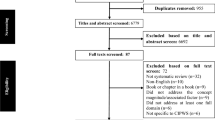Abstract
Although both behavioral disturbances and executive impairments of patients with the behavioral variant frontotemporal dementia (bvFTD) seem to depend on early neurodegenerative damages to the prefrontal cortex, the relationship between these two distinct clinical features has been only partially established and represents the focus of the current preliminary neuropsychological study. Ten subsequent bvFTD patients underwent a neuropsychiatric assessment with the Frontal Behavior Inventory and a neuropsychological battery focused on prefrontal functions. Significant correlations were found only between negative symptoms and measures of prevalent medial prefrontal functioning, i.e. decision making under ambiguity (Iowa gambling task) (r = −0.887; p = 0.018) and affective theory of mind (reading the mind in the eyes task) (r = −0.982; p = 0.017). This finding could preliminary support a “frontal lobe syndrome” hypothesis for negative symptoms of bvFTD patients, as proposed for negative symptoms of schizophrenia; the small sample size represents a limit and empirical findings need replication in larger samples of bvFTD patients.
Similar content being viewed by others
References
Piguet O, Hornberger M, Mioshi E, Hodges JR (2011) Behavioural-variant frontotemporal dementia: diagnosis, clinical staging and management. Lancet Neurol 10:162–172
Neary D, Snowden JS, Gustafson L, Passant U, Stuss D, Black S et al (1998) Frontotemporal lobar degeneration: a consensus on clinical diagnostic criteria. Neurol 51:1546–1554
Poletti M, Enrici I, Adenzato M (2012) Cognitive and affective theory of mind in neurodegenerative diseases: neuropsychological, neuroanatomical and neurochemical levels. Neurosci Biobehav Rev 36:2147–2164
Huey ED, Goveia EN, Paviol S, Pardini M, Krueger F, Zamboni G et al (2009) Executive dysfunction in frontotemporal dementia and corticobasal syndrome. Neurology 72:453–459
Raczka KA, Becker G, Seese A, Frisch S, Heiner S, Marschhauser A et al (2010) Executive and behavioral deficits share common neural substrates in frontotemporal lobe degeneration: a pilot FDG-PET study. Psychiatry Res 182:274–280
Kertesz A, Nadkarni N, Davidson W, Thomas AW (2000) The frontal behavioral inventory in the differential diagnosis of frontotemporal dementia. J Int Neuropsychol Soc 6:460–468
Bechara A (2007) Iowa gambling task professional manual. Psychological Assessment Resources, Lutz, FL
Zald DH, Andreotti C (2010) Neuropsychological assessment of the orbital and ventromedial prefrontal cortex. Neuropsychologia 48:3377–3391
Liddle PF (1987) Schizophenic syndromes, cognitive performance and neurological dysfunction. Psychol Med 17:49–57
Weinberger DR (1988) Schizophrenia and the frontal lobe. Trends Neurosci 11:367–370
Donohoe G, Robertson H (2003) Can specific deficits in executive functioning explain the negative symptoms of schizophrenia? a review. Neurocase 9:97–108
Ziaudden H, Dibben C, Kipps C, Hodges JR, McKenna PJ (2011) Negative schizophrenic symptoms and the frontal lobe syndrome: one and the same? Eur Arch Psychiatry Clin Neurosci 261:59–67
Dibben CRM, Rice C, Laws K, McKenna PJ (2009) Is executive impairment associated with schizophrenic syndromes? a meta-analysis. Psychol Med 39:381–392
Shurman B, Horan WP, Nuechterlein KH (2005) Schizophrenia patients demonstrate a distinctive pattern of decision making impairment on the Iowa Gambling Task. Schizophr Res 72:215–224
Martino DJ, Bucay D, Butman JT, Allegri RF (2007) Neuropsychological frontal impairments and negative symptoms in schizophrenia. Psychiatry Res 152:121–128
Lincoln TM, Mehl S, Kesting ML, Rief W (2011) Negative symptoms and social cognition: identifying targets for psychological interventions. Schizophr Bull 37:S23–S32
Conflict of interest
None.
Author information
Authors and Affiliations
Corresponding author
Rights and permissions
About this article
Cite this article
Poletti, M., Lucetti, C., Logi, C. et al. Cognitive correlates of negative symptoms in behavioral variant frontotemporal dementia: implications for the frontal lobe syndrome. Neurol Sci 34, 1893–1896 (2013). https://doi.org/10.1007/s10072-013-1400-2
Received:
Accepted:
Published:
Issue Date:
DOI: https://doi.org/10.1007/s10072-013-1400-2




